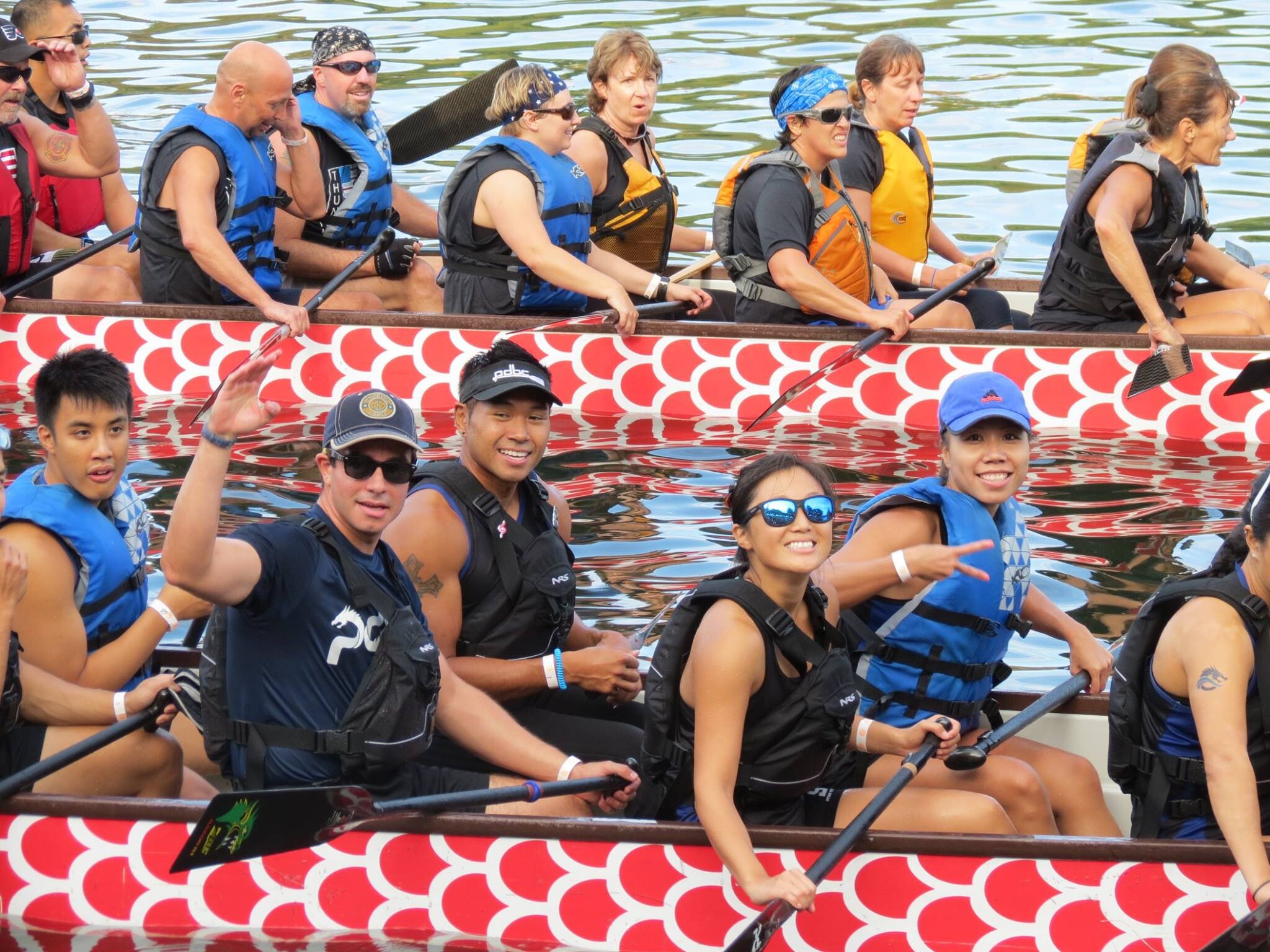
nocred

Six times a week, often before sunrise, Barry Slaff hops on his bike for a 20-minute ride to Philadelphia’s Martin Luther King Drive. There, he joins friends and training partners for an hour or more of exertion on the Schuylkill River in a colorful dragon boat, an endeavor he calls “everything I love about sports and exercise.
“It’s a team sport,” says Slaff. “The whole team has to be on the same page and work together. Plus, you practice on the Schuylkill River in Fairmount Park. It’s a great place to spend a lot of time.”
All that time is paying off for Slaff, a third-year doctoral student in Penn’s computer and information science department in the School of Engineering and Applied Science (SEAS). Together with teammates from across the nation, he is competing this week against groups from 30 countries at the World Dragon Boat Racing Championships in Pattaya-Rayong, Thailand.
“I feel very fortunate to be part of this team,” he says.
Slaff had participated in sports since childhood but didn’t discover dragon boating until turning up for a practice three years ago with the Pennsylvania Dragon Boat Club, a group founded by Penn alumni. “I just fell in love with it right away,” he says.
As he got more committed to the sport, he began training with the Philadelphia Dragon Boat Association (PDBA), one of the longest-standing such groups in the United States
Racing dragon boats has been a popular sport in many Asian countries for centuries but only began spreading to other parts of the world around four decades ago. Philadelphia, which already had a strong rowing community, has become a stronghold of dragon boat racing culture. PDBA members strive to compete at the World Championships at every opportunity.
Slaff has embraced that ethos. In addition to four or five team practices a week, he also trains in a small boat on his own a couple times a week and does cross fit a few times a week for additional conditioning.

In a dragon boat, 22 teammates work together. Ten paddlers sit on each side of the boat in rows of two. One person stands in the back to steer. And in the front, traditionally, is a drummer who helps the crew keep time, though that person can also serve as an on-board coach.
Team practices consist of drills and then short or longer intervals of repeated racing. Race lengths range from 200 meters, which generally takes less than 50 seconds, to 2,000 meters, which can take as long as 10 minutes.
“I tend to think I’m better at the longer distances, but I race them all,” says Slaff.
He qualified as a reserve member for the World team during a time trial in late June, and will be joining teammates from New England, California, Chicago, Florida, and elsewhere to compete in races of various distances in Thailand this week. Slaff had the opportunity to meet the team and practice with them at a race in Long Beach, California, in late July.
And in between it all is the science. Slaff, a member of the lab of Yoseph Barash, a professor with appointments in the Perelman School of Medicine and in SEAS, traveled to Switzerland with his research group this summer to give a conference talk on modeling confounding factors in RNA splicing studies. He flew straight from there to California for his races.
“I’m able to put in a lot of time during the week and weekend to advance my research goals and still make sure I’m in bed early and doing the things I need to do to be effective at practice,” he says. “The way I see it, it’s not sacrificing one thing for another; it’s about doing everything you need to do.”
Katherine Unger Baillie

nocred

nocred

Despite the commonality of water and ice, says Penn physicist Robert Carpick, their physical properties are remarkably unique.
(Image: mustafahacalaki via Getty Images)

Organizations like Penn’s Netter Center for Community Partnerships foster collaborations between Penn and public schools in the West Philadelphia community.
nocred